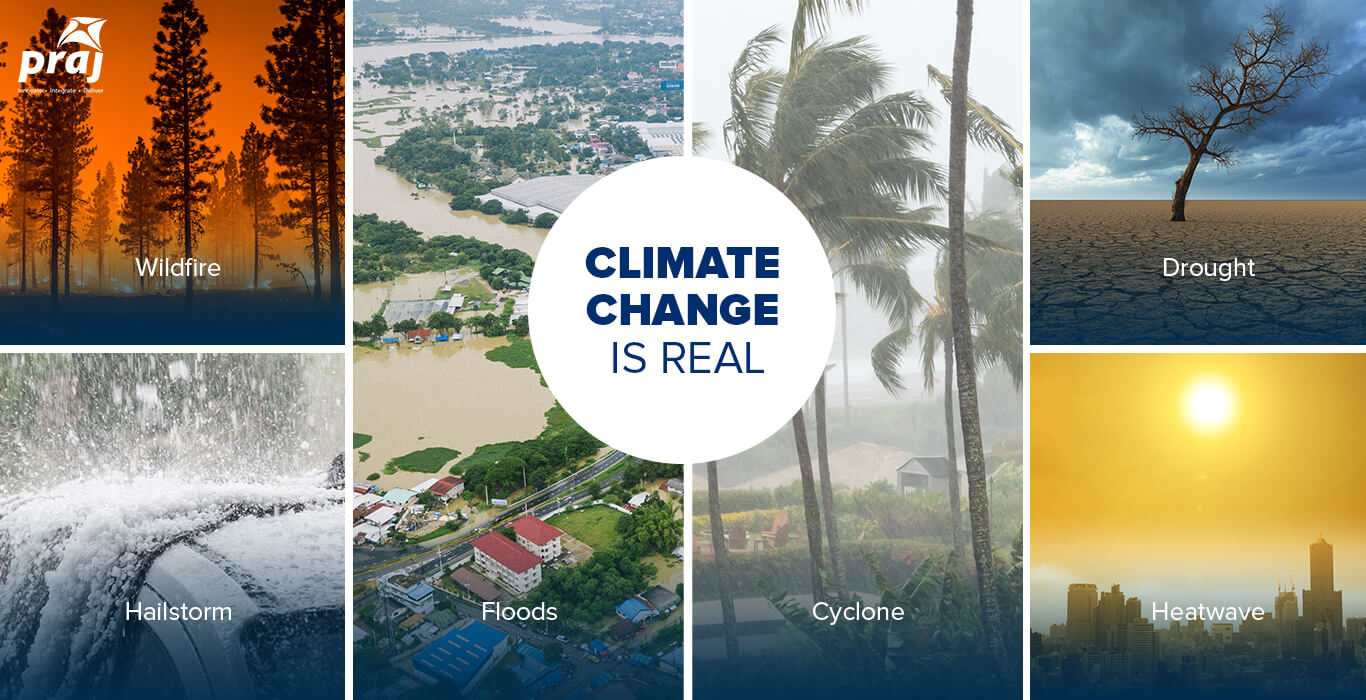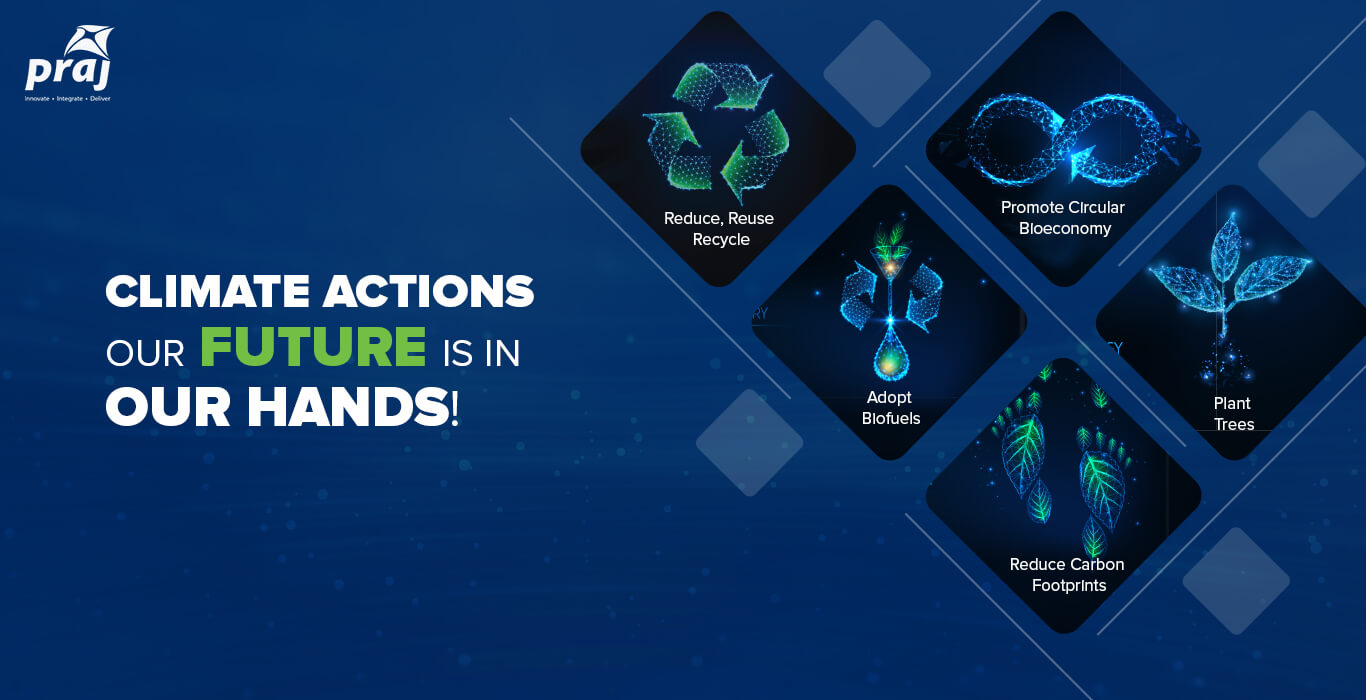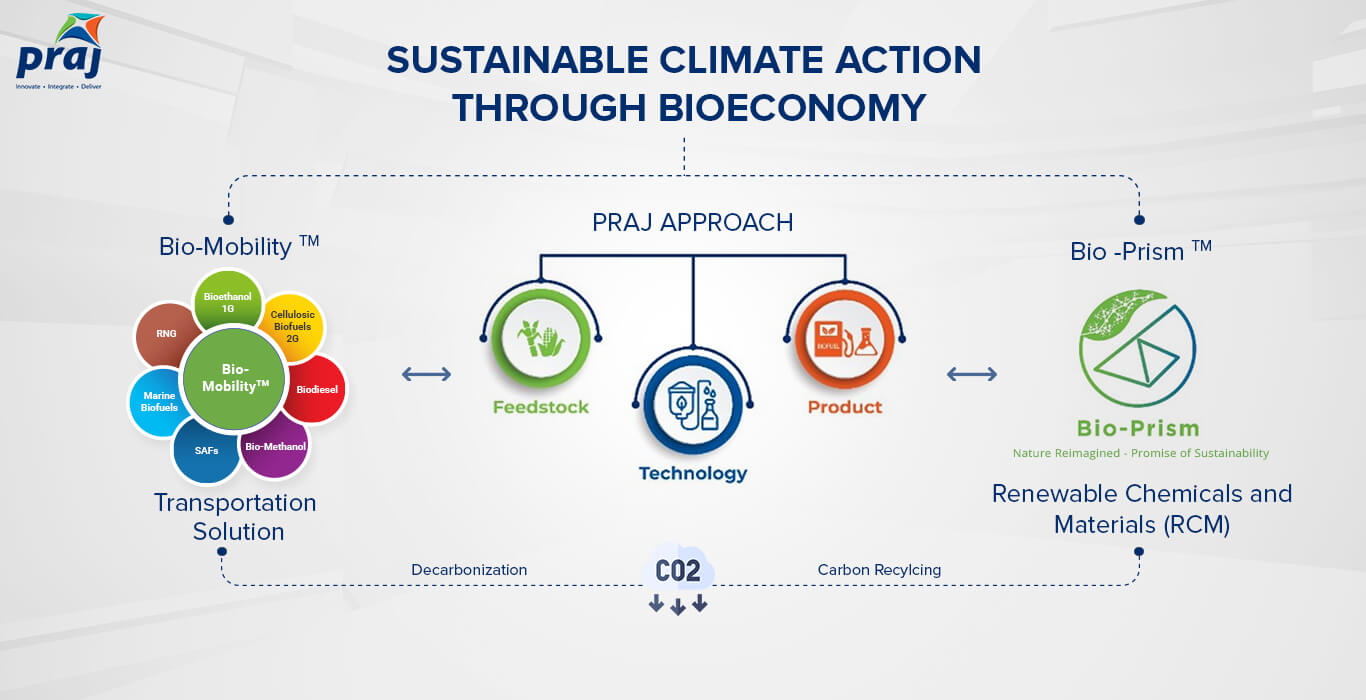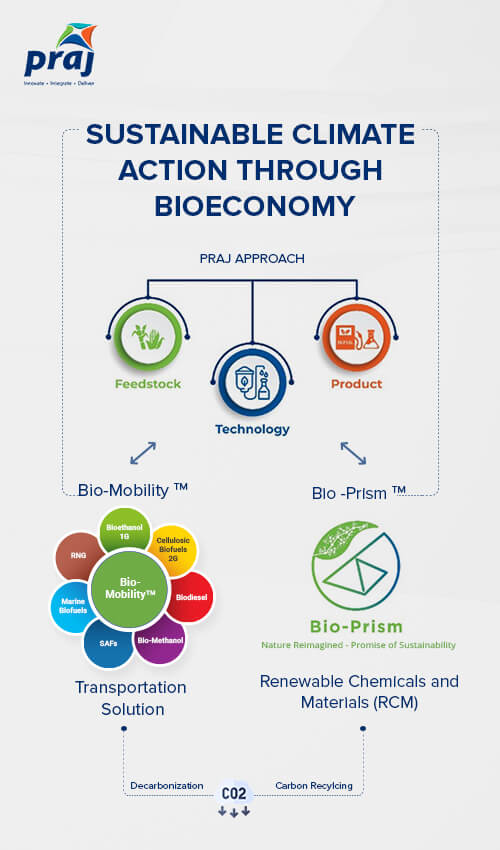Making Way For A Greener, Cleaner and Fuel Rich World
Amidst the public outcry over rising fuel prices, a big developmental step taken by our country may have gone unnoticed. The Central Government of India made official the National Policy on Biofuels on May 16 2018, which allows doping of ethanol produced from damaged food grains, rotten potatoes, corn and sugar beet with petrol and will help cut oil imports by `4,000 crore this year alone. This national policy on biofuels has a potential of Rs. 1 lakh crore investment that will facilitate adoption of second generation, advanced biofuels like ethanol. To achieve 40% reduction in Carbon Emission, it is necessary to assist non-food feedstock-based advanced biofuels and to develop these as industry of scale. Oil Marketing Companies can sell Ethanol Blending Programme (EBP) with ethanol percentage upto 10% under Ethanol Policy India.
India currently relies more than 80 per cent on imports to meet its oil needs. Domestic crude oil production was almost flat at 32.6 MT in April-February. Domestic crude oil production in 2016-17 was 36 MT and in the previous fiscal was 36.9 MT. As against this, domestic consumption has been rising - from 184.7 MT in 2015-16 to 194.6 MT in 2016-17. It was 186.2 MT in first 11 months of 2017-18. An estimated 75% of India’s sedimentary basins have yet to be adequately explored. Of the 26 known sedimentary basins in the country, only seven are currently producing oil and gas. This says that India possesses at least 91 trillion cubic feet of recoverable gas reserves. Moreover, India also holds an estimated 63 trillion cubic feet of recoverable shale gas. India will have to enhance its energy security by procuring energy supplies at affordable prices to meet the growing energy requirement over the next few years. The petroleum minister has approved raising crude oil output from Barmer oil field in the state of Rajasthan, and is now preparing a roadmap to cut India's energy imports by 50% in next seven years to make India self-reliant by 2030 according to a study done by Nielsen for Petroleum Planning and Analysis Cell, GOI.
The nation is going through multiple changes - leading to change in fuel consumption patterns. Despite our varied demography, India’s democratic system has proved elemental for the progress in the country, which binds its 65 percent young population with the India growth story. This 65 percent population under the age of 35 years, personal mobility is bound to grow; which again leads to higher fuel consumption. India has a total population base of more than 1.25 billion. With a stable parliamentary system; quality talent at competitive price; and technological advancements, have made it a preferred investment destination for manufacturers and service providers alike.
To benefit from this growth trajectory, India needs to reduce its expense on oil imports while it feed the growing demand. Thus this move towards increasing bio-fuel production will not only reduce our oil import bills, but also enables us to reduce carbon emissions by 40% till FY 2030. In 2017-18 year itself the ethanol supply is likely to see a supply of around 150 crore litres of ethanol which will result in savings of over Rs 4,000 crore in forex and help cut carbon dioxide emission by 30 lakh tonne. Around 80% of ethanol produced globally is used as vehicular fuel. With increasing demand for cleaner fuels and an attempt to reduce dependence on crude oil, more than 60 countries in the world are at different stages of ethanol blending mandate. It will provide additional advantages like infrastructural investment in rural areas; generate employment and provide additional income to farmers. Demand for natural gas will grow by 185 per cent to 14 Billion cubic feet (Bcf) per day in 2040 from 5 Bcf per day in 2016. With an annual growth of 4.5 per cent, natural gas energy share in the country’s total energy mix will grow to 7 per cent in 2040 from 6 per cent in 2016. Natural gas production is predicted to increase 96 per cent to 49 Mtoe in 2040 from 25 Mtoe in 2016. It is expected that Coal production will increase by 154 per cent to 734 Mtoe in 2040 from 289 Mtoe in 2016, with coal remaining the dominant fuel produced in India with a 63 per cent share of total production in 2040. It is also probable that renewable energy production will overtake gas and subsequently oil by 2020 as the second largest source of energy production.
So, Biofuels is the right medicine that the Governemnt has prescribed for long term gains to the economy. Under the policy, “a viability gap funding scheme for 2G ethanol bio refineries of 5,000 crore in 6 years in addition to additional tax incentives, higher purchase price as compared to 1G biofuels” will be provided. This new national policy on biofuels will swing the focus from first generation (1G) biofuels which are sugar based, made from molasses and vegetable oils and consequently pollute the environment. Biofuel Policy will make possible use of other kinds of feedstock like cellulose based and lignocellulose materials. A ‘Waste to Wealth’ economy can be thus created by reducing crop burning and conversion of agricultural residues/wastes to biofuels that reduces Green House Gas emissions. There are even technologies which can convert waste/plastic and municipal solid waste to drop in fuels. A ton of such waste has the potential to supply around 20 per cent of fuel. It is estimated that annually 62 million tonnes of municipal solid waste gets generated in India. There is a need to set up supply chain systems for biodiesel manufacture from non-edible oilseeds, used cooking oil and short gestation crops.
At present, level of ethanol blending in petrol is 2.5 per cent. Various Oil Marketing Companies (OMCs) are running Ethanol Blending Programme (EBP). Moreover, govt. will authorize OMCs to sell EBP with ethanol percentage upto 10% under Ethanol Policy India. Investment of `800 crore is needed to set up a 100 kilolitre per day bio refinery. At present Oil Marketing Companies are in the process of setting up 12 2G bio refineries with an investment of around `10,000 crore.
Praj is one of the very few companies in the world to effectively develop 2nd generation ethanol technology using agri-residue. It is a process solutions company with a worldwide reach. Leading the way by innovation & integration capabilities, it offers solutions to add significant value to Bio-ethanol facilities, Water & Wastewater treatment systems, Brewery plants, Critical Process Equipment & Systems, Hipurity solutions and other bio-products. Praj has focused on Environment, Energy and Agri process led applications for more than three decades. Praj has been a preferred partner across five continents with over 1000++ references; for process engineering, plant & critical equipment & systems.
Praj is a major global player in the environment, energy and agri processing led applications. The Company is a frontrunner in the 2nd generation ethanol technology. Praj’s own and India’s first integrated 2nd gen demonstration bior-efinery has been operational since Dec 2016. Indian Oil Marketing Companies are setting up several 2nd gen bio-refineries in India, where Praj has been selected as the technology partner for multiple projects. Also, several overseas customers are discussing Praj’s 2nd gen technology for bio-refinery plants in different countries.
*This blog has been compiled using the data released to the press by Petroleum Planning & Analysis Cell (PPAC), Ministry of Petroleum & Natural Gas, Government of India. These figures are indicative and we are not liable for any discrepancy in data.










